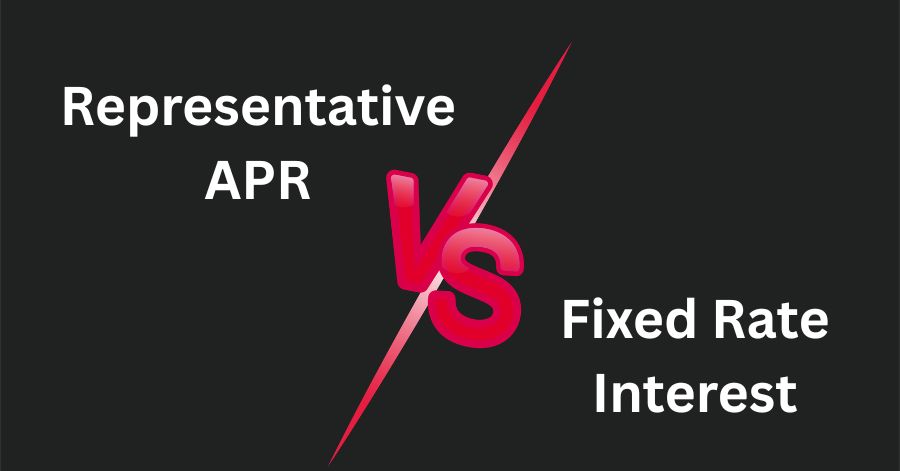The world of borrowing can seem overwhelming, especially to teenagers just beginning their financial journeys. With so many tempting offers and easy access to credit, it’s crucial that young people learn how to manage debt wisely.
Teaching teens about responsible borrowing not only helps them avoid costly mistakes, but also sets them up for a healthier financial future. Whether you’re a parent, teacher, or mentor, there are practical ways to equip teens with the knowledge and confidence they need. Here are ten tips to help guide teens in borrowing responsibly.
1. Start with the Basics of Borrowing
Begin by explaining what borrowing really means. Many teens may not fully grasp the concept that when they borrow money, it must be paid back, often with added interest or fees. Use everyday examples, such as Same Day Loans or credit cards, to make the idea more relatable.
Discuss the difference between needs and wants, and why borrowing should only be used for genuine needs, not impulse spending. Laying a strong foundation helps teens make more thoughtful decisions later on.
2. Discuss the Importance of Credit Scores
Talk to your teen about what a credit score is and why it matters. Explain how credit scores are affected by borrowing habits, including missed or late payments. Highlight how a poor credit score can make it harder or more expensive to borrow in the future, while good habits can lead to better opportunities.
Encourage your teen to think of a credit score as a report card for their financial behaviour, one that will follow them into adulthood.
3. Explain How Interest and Fees Work
Many teens are unaware of how much borrowing can actually cost over time. Teach them about interest rates, annual percentage rates (APR), and any extra fees that may come with loans or credit cards.
Show them how small amounts can add up quickly if they only make minimum payments. Use online calculators or real-life examples to illustrate the point. Helping teens understand the true cost of borrowing ensures they think twice before taking on debt.
4. Encourage Setting a Budget Before Borrowing


Teach your teen to always have a budget before considering any kind of borrowing. Show them how to list their income, expenses, and how much they can realistically afford to repay each month.
Emphasise that borrowing should never compromise essentials like rent, food, or transport. Encourage the habit of asking, “Can I afford this?” before taking on any debt. Building budgeting skills early will help them manage money well for life.
5. Talk About the Consequences of Missed Payments
Make sure your teen understands that missing payments has real consequences. Explain how late payments can result in additional charges, damage to credit scores, and increased stress. Use examples to show how missed payments can spiral into bigger financial problems.
Encourage open conversations about what to do if they ever struggle to repay. Knowing the risks helps teens approach borrowing with greater care and responsibility.
6. Teach Them to Compare Lenders and Offers
Encourage your teen to always shop around before agreeing to any loan or credit offer. Explain the importance of comparing interest rates, terms, and fees from different lenders. Highlight that not all deals are created equal, and the cheapest monthly payment isn’t always the best deal overall.
Show them how to read the small print and spot hidden charges. This approach empowers teens to make smarter choices and avoid unnecessary costs.
7. Stress the Importance of Borrowing Only When Necessary
Instil the value of using borrowing as a last resort, not a go-to solution for every want or desire. Talk about the dangers of using debt to fund a lifestyle they can’t afford. Discuss the benefits of saving up for purchases instead of relying on credit.
Emphasise that borrowing should be reserved for emergencies or important investments, not everyday spending. This mindset helps prevent bad financial habits from taking root.
8. Encourage Open Communication About Money
Make talking about money normal and judgement-free. Encourage your teen to ask questions, share concerns, and seek advice if they are unsure about borrowing. Let them know that it’s okay to make mistakes and learn from them.
Foster an environment where financial discussions are open, honest, and supportive. This builds confidence and reduces the fear or shame often linked to money problems.
9. Lead by Example
Teens learn a lot by observing adults. Be honest about your own experiences with borrowing, both good and bad. Share stories about what worked well or mistakes you wish you’d avoided.
Demonstrate responsible borrowing habits by managing your own debts carefully, budgeting, and seeking advice when needed. Showing teens what responsible borrowing looks like in real life can have a powerful and lasting impact.
10. Point Them Towards Reliable Financial Resources

Finally, guide your teen to trustworthy sources of financial education and advice. Recommend websites, books, or charities that offer impartial information on borrowing, budgeting, and credit. Encourage them to use online tools like loan calculators and credit report services.
Knowing where to find reliable help empowers teens to make better decisions and become financially independent as they grow older.
Final Words
Teaching teens about borrowing responsibly is an investment in their future financial wellbeing. By equipping them with knowledge, practical skills, and good habits, you’re helping them avoid costly mistakes and build confidence with money. The lessons you share today will guide them throughout their adult lives and set them on the path to long-term success.
FAQs
At what age should I start talking to my teen about borrowing?
It’s never too early to start! Begin with basic money concepts in early teens, then introduce borrowing and credit topics as they approach sixteen or start earning money.
Should teens get a credit card to build credit?
Only if they understand the responsibility. Consider adding them as an authorised user on a parent’s account to help build credit without full responsibility.
How can I help my teen if they get into debt?
Stay calm and supportive. Help them assess the situation, create a repayment plan, and learn from the experience. Seek professional advice if the debt becomes overwhelming.
What are some good resources for teens to learn about money?
Websites like MoneyHelper, Young Money, and Citizens Advice offer great guides. Books and budgeting apps designed for young people are also useful tools for learning about finance.




















